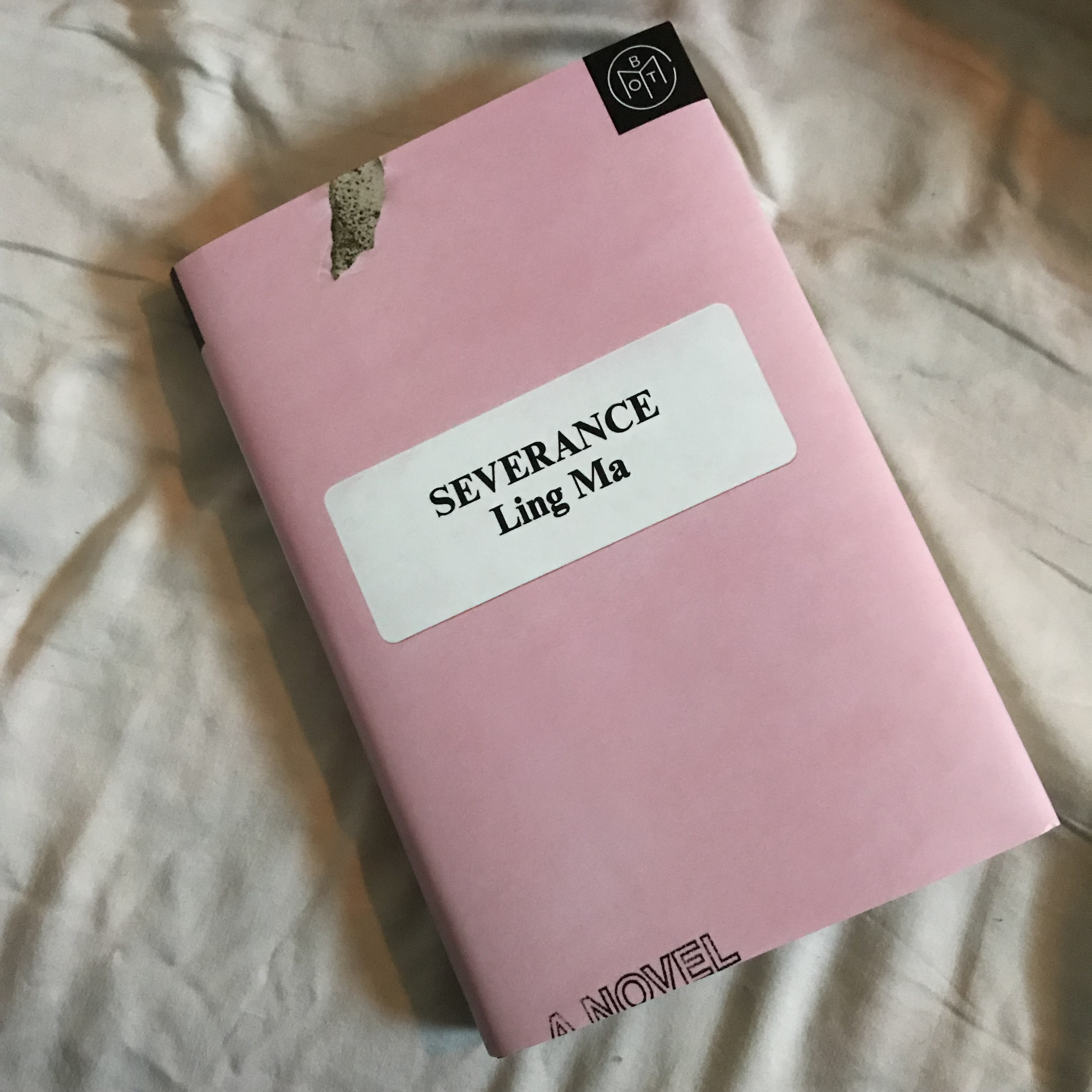There should be a genre for books that make New York a character in a self-effacing, ironic way. They’re not like other books––a pick me book, if you will. New York is not the love interest. It’s the ex-boyfriend who makes off-handed comments about the protagonist’s weight. NYC is the upstairs neighbor who has an inexplicable urge to move furniture in the middle of the night.
“Severance” is not without its clichés. In fact, the entire premise is a satirization of living (and working) in the midst of a terrifying pandemic. Maybe this sounds…familiar? When I picked up the book, I expected to hate it. Every SNL skit and Tweet trying to unpack the pandemic is tiresome and boring. Can’t anything just be fun? Despite my many reservations (and my inexplicable aversion to books from the perspective of people my age), Ling Ma’s writing was magnetizing.
The first chapter felt like gossiping with the girlies over brunch. Our protagonist, a disillusioned mid-20s Candace, recalls the sudden descent of her relationship with her boyfriend on a hot New York summer’s night. Ling Ma balances perfectly the suspense of a post-apocalyptic nightmare and the mundanity of being approximately twenty-five.
Though I joke about this being a pick-me book, in reality, “Severance” pioneers a new genre altogether; bridging the gap between science-fiction and a loving, empathetic character study. Of course, the sci-fi genre is filled to the brim with important cultural revelations but books like “Severance” and “Never Let Me Go” by Kazuo Ishiguro hold a special place in my heart for their ability to blend the fantastical with the most intimate human emotions fathomable.
When I turned the first few pages, the reviews for “Severance” felt a little lost on me. Pages upon pages of reviews from the New York Times to Vogue called this book a “humorous satire” about working through the end of days. In my reading, nothing felt particularly satirical about wearing masks and working in a sweeping pandemic, we’ve done it before. It wasn’t until I realized the publication date was in 2018 that I realized this novel wasn’t informed by COVID. What was once viewed as cutting satire is now a lurking memory of the last two years of our lives.
4.5/5

Comments
Post a Comment